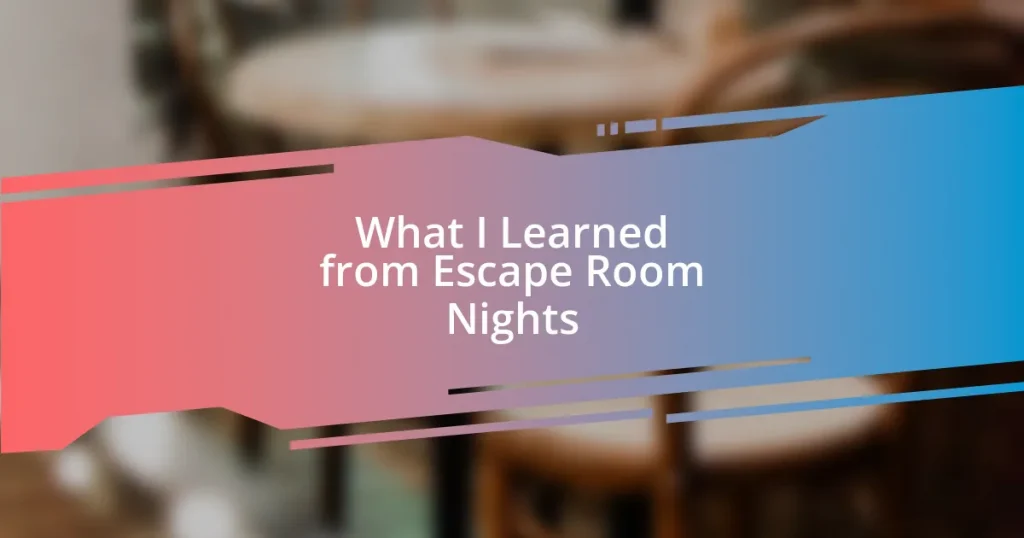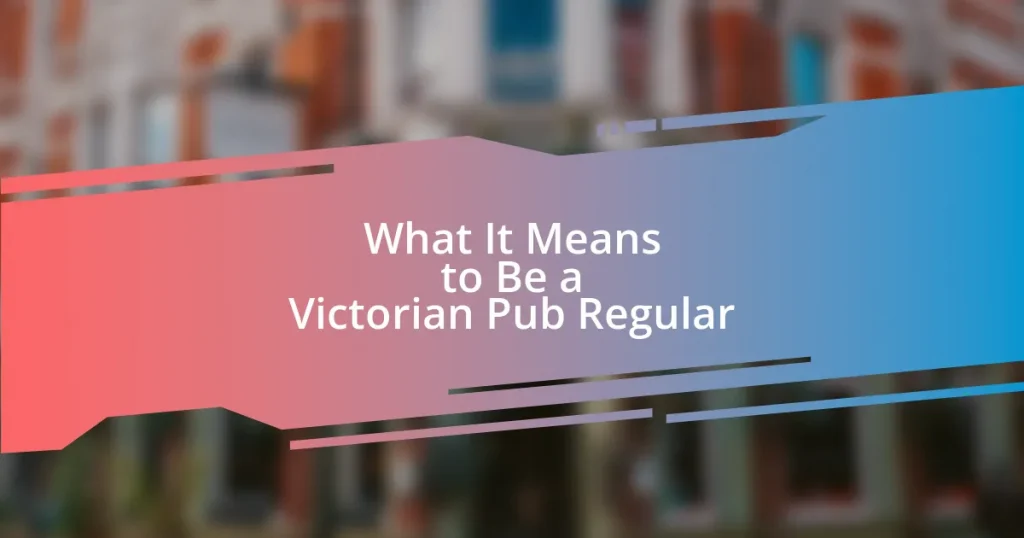Key takeaways:
- Escape rooms foster teamwork and camaraderie by challenging groups to solve puzzles within a set time limit.
- Customizable themes and engaging narratives enhance the enjoyment and appeal of the escape room experience.
- Effective teamwork is achieved through open communication, role assignment based on strengths, and celebrating small victories.
- Problem-solving techniques like breaking tasks down, thinking outside the box, and maintaining a clear mindset are crucial for success.
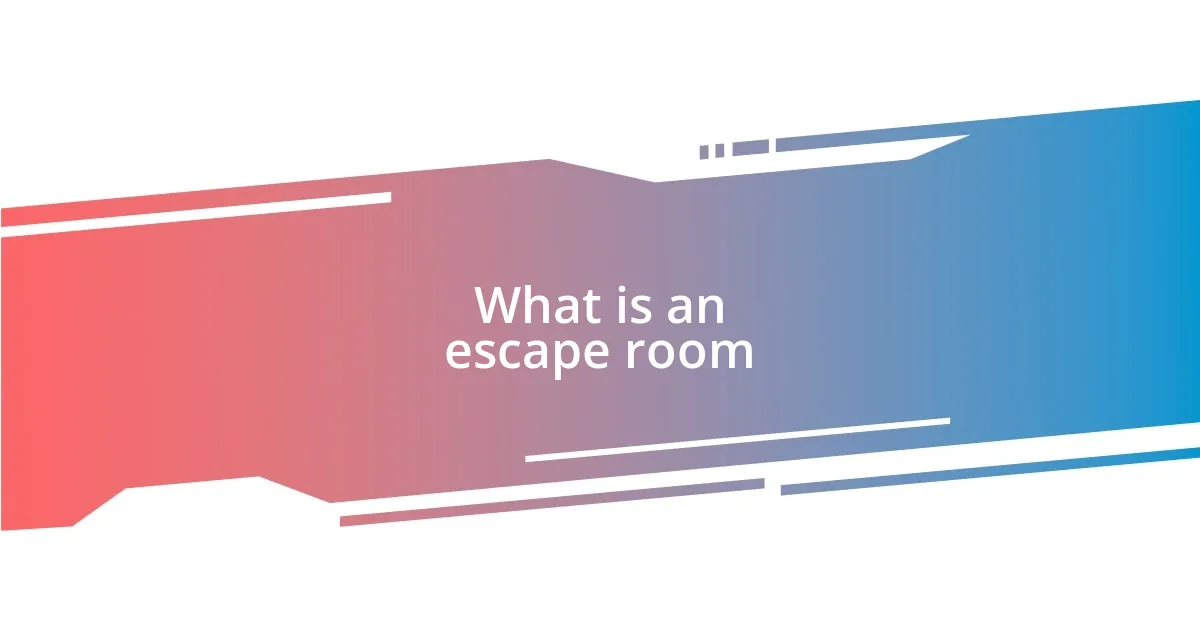
What is an escape room
Escape rooms are immersive experiences designed to challenge groups of people to solve puzzles and riddles within a themed environment. I remember my first experience: the sense of urgency was palpable as we raced against the clock, adrenaline pumping with each discovery. Isn’t it fascinating how a simple room can spark such intense teamwork and camaraderie?
Typically, you and your friends are “locked” in a room, with the goal being to “escape” within a set time limit, usually an hour. What struck me most was the way everyone’s individual strengths came to light. Some people excel at logical thinking, while others shine in creative problem-solving; it’s a beautiful reminder of how diverse skills can come together to tackle challenges.
As you delve deeper into the experience, you’ll encounter a narrative woven into the puzzles, often involving twists and surprises. Reflecting on those moments, I often think: how can a few cleverly placed clues transform your perspective, making you feel like you’re part of a story? It’s that blend of thrill, mystery, and collaboration that truly defines what an escape room is all about.
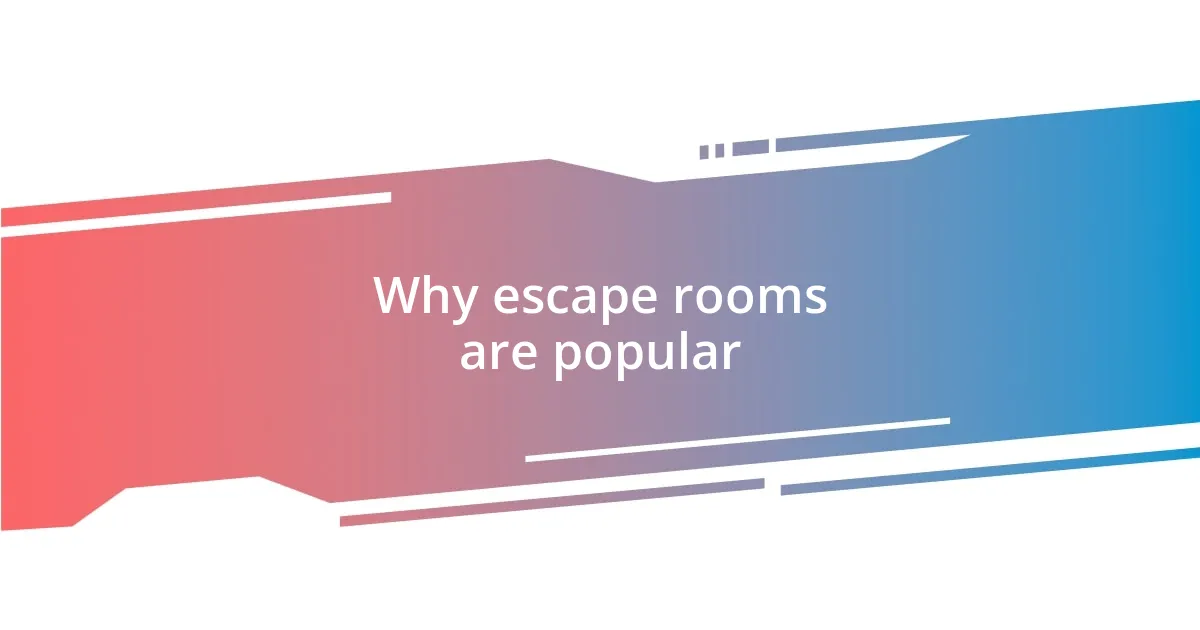
Why escape rooms are popular
Escape rooms have surged in popularity largely due to their unique blend of entertainment and mental challenge. From my experiences, I’ve found that they offer a break from the ordinary, pulling you into an intriguing narrative that requires teamwork and creative thinking. I can’t help but recall one memorable night where the clock was ticking, and every puzzle seemed to ignite a fierce competitive spirit among friends—such moments strengthen friendships in surprisingly profound ways.
Another factor contributing to the appeal is the customizable nature of these experiences. Different themes—from horror to mystery to adventure—cater to diverse interests, making it easy for groups to choose a setting they’ll enjoy. I’ve participated in a pirate-themed escape, where the excitement was palpable as we decoded nautical maps. It was incredible how the theme transported us, making the challenges feel like a grand adventure rather than mere puzzles.
Lastly, the sense of accomplishment after successfully escaping is genuinely exhilarating. I clearly remember the elation washing over us as the final clue clicked into place. It’s a rush, knowing that teamwork and perseverance paid off! This exhilarating feeling is often what people chase, making escape rooms not just a game but an unforgettable shared experience.
| Appeal Factor | Details |
|---|---|
| Entertainment and Challenge | Engaging narratives that spark teamwork and creativity. |
| Customizable Themes | Diverse settings cater to various interests and preferences. |
| Sense of Accomplishment | Rewarding feeling of success after solving puzzles as a team. |
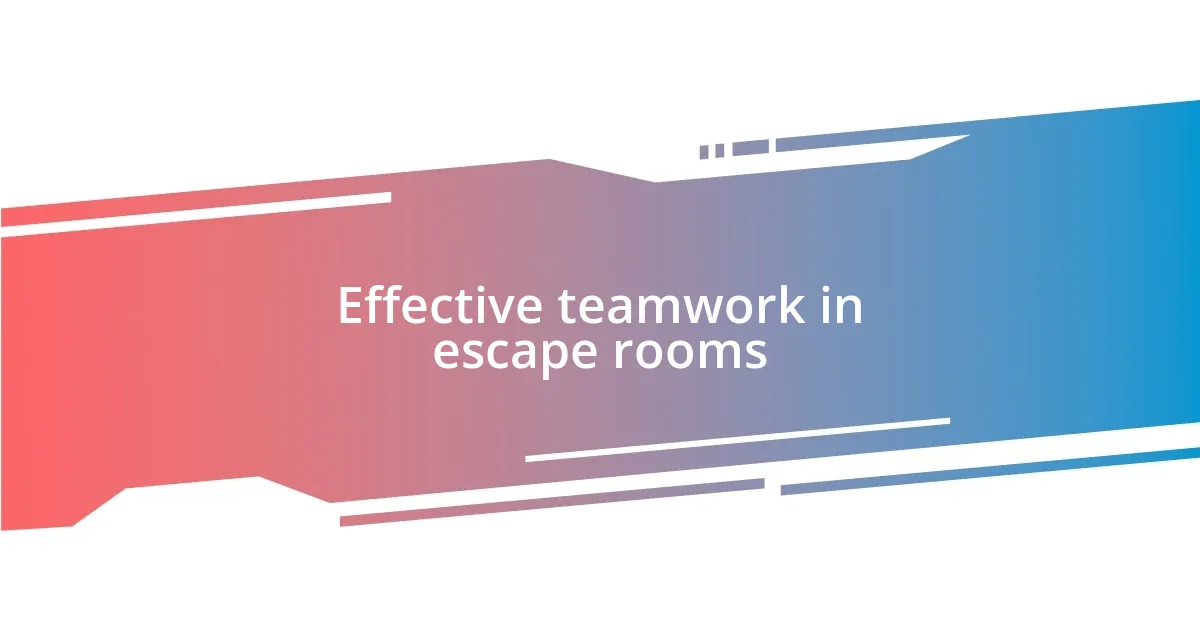
Effective teamwork in escape rooms
Effective teamwork in escape rooms is vital for success. I’ve found that collaboration often stirs a sense of community, with each team member contributing unique perspectives. During one of our escape nights, I vividly recall how a quiet friend, who typically shies away from discussions, suddenly spoke up with a brilliant idea that turned the tide for us. It was such a revelation—realizing that everyone has something valuable to offer.
- Open communication and sharing of ideas foster a deeper connection among team members.
- Assigning roles based on strengths can enhance efficiency; for instance, the detail-oriented might take charge of clues while big-picture thinkers lead strategizing.
- Celebrating small victories together boosts morale, making problem-solving feel less daunting.
In another experience, I noticed the atmosphere shift when we collectively embraced our failures. After struggling with a particularly tricky puzzle and coming up short, we took a moment to regroup. We laughed about our mishaps, which not only eased tension but energized us to tackle the next challenge with renewed determination. The bond formed through both success and failure is a powerful reminder that effective teamwork thrives on resilience and support.
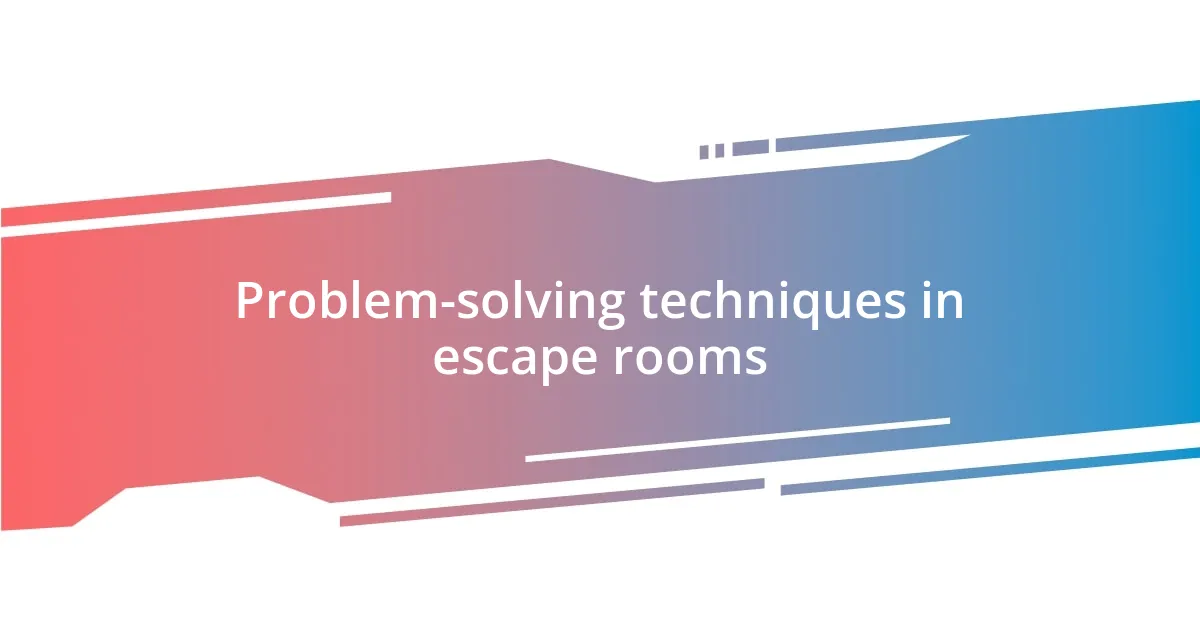
Problem-solving techniques in escape rooms
Problem-solving techniques in escape rooms are fascinating to explore. One effective approach is breaking down puzzles into smaller tasks. I recall a time when one particularly intricate riddle stumped our group. Instead of getting overwhelmed, we split it into pieces, tackling one part at a time. This strategy not only simplified the challenge but also kept everyone engaged and motivated.
Another technique I’ve found useful is thinking outside the box. In one escape room, a seemingly unrelated clue caught my attention, and instead of dismissing it, I voiced my thoughts to the team. Surprisingly, it turned out to be essential for solving a major puzzle. This experience reinforced my belief that creativity can turn a simple observation into a breakthrough moment. Have you ever had an “aha” moment like that?
Additionally, I’ve noticed the importance of keeping a clear mindset. During one night filled with distractions and missteps, I realized that stepping back and taking a few deep breaths was crucial. I encouraged my teammates to do the same, and we returned to the puzzles with renewed focus and clarity. This experience reminded me that sometimes, the best problem-solving technique is simply to pause, reflect, and regroup.










